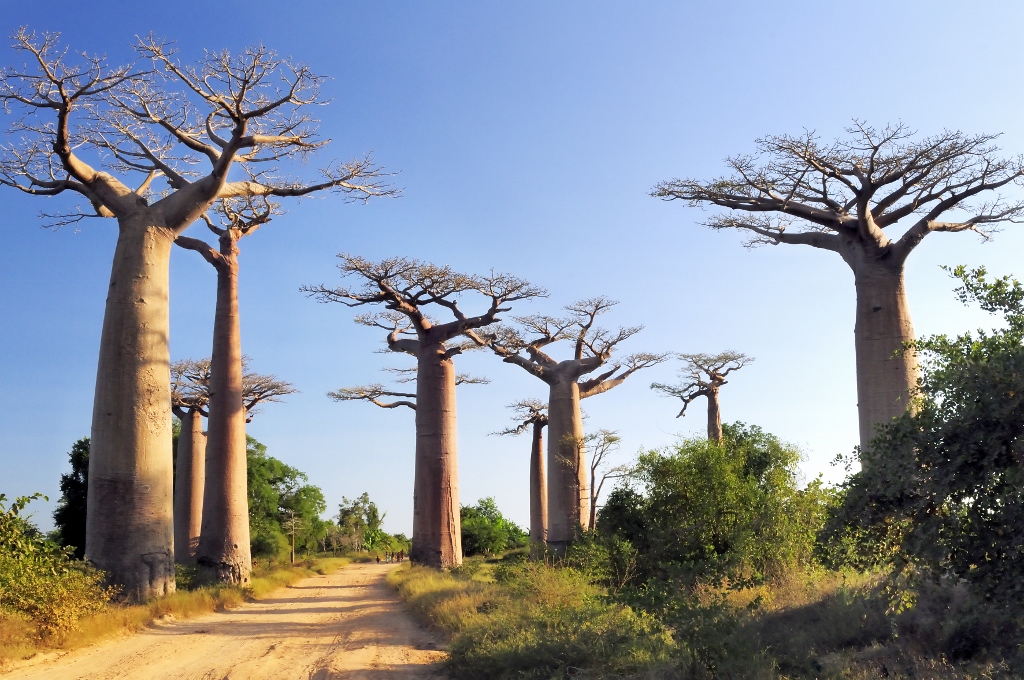Inspiring Women in International Development | AfID Editorial 201418.08.2014
Recent years have seen a change in the attitudes of society, with women flourishing in influential roles across the developing world, in places where gender inequality has often been prevalent. In 2006 the people of Liberia elected their first female president, Ellen Johnson Sirleaf, marking another step towards
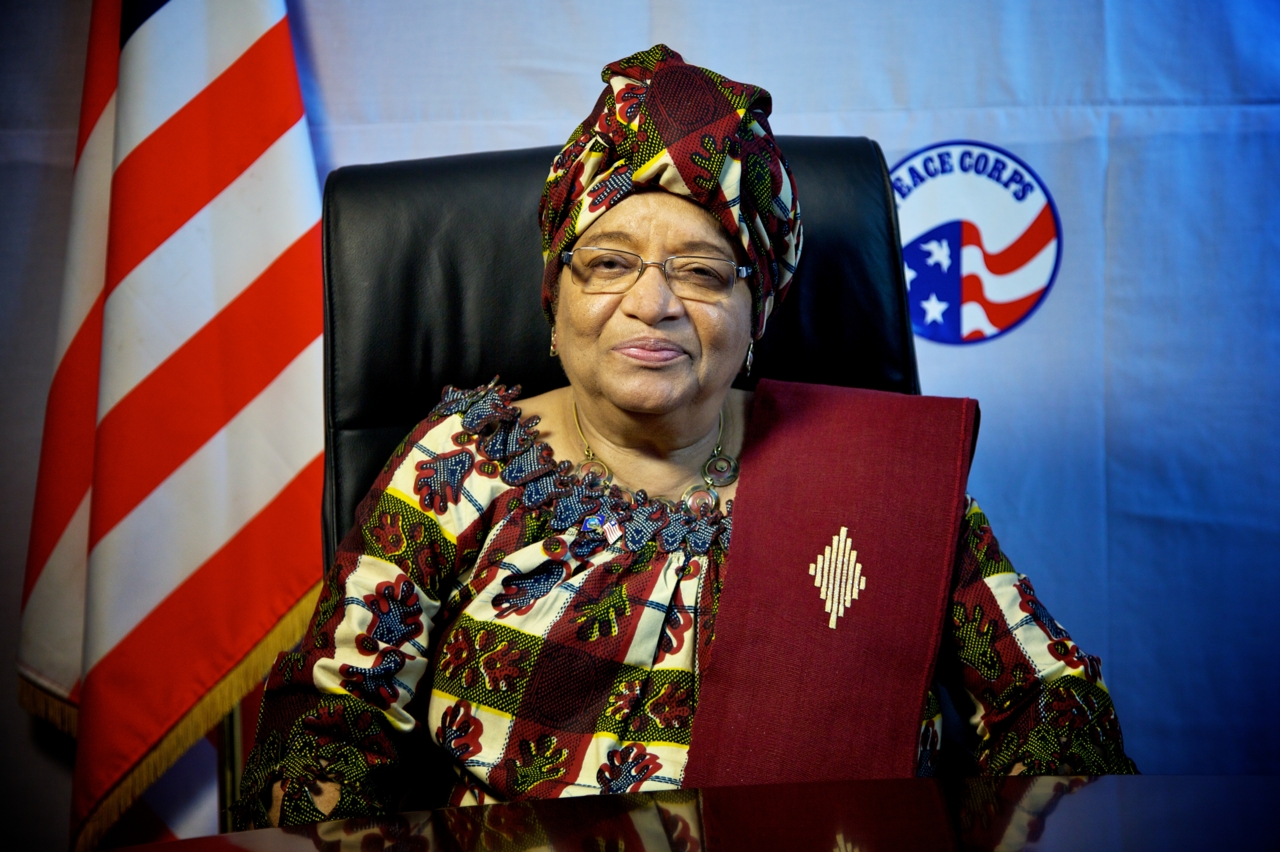
The EU Commissioner for Development, Andris Piebalgs recently stated that “women in power can make a positive difference, it’s vital that every woman is given the chance to fulfil her potential; no matter where she lives”. This came after a survey across Europe found over 90% of Europeans believe that gender equality improves the way that society functions and that all aid programs should take women’s rights into account.
Over the past 5 years AfID have encountered hundreds of women whose talent and continued commitment has changed lives. With the global attitude towards gender equality shifting in favour of a more equal approach, it serves to highlight the harsh realities that women of the developing world have faced in the past and it makes the stories of these women all the more inspiring to know what difficulties they overcame to reach their goals and to commit to helping others.
Raina Luff, founder of Ahazaza Independent School, RWANDA
Ten years on from one of the worst genocides, Rwanda has made giant strides but there is still plenty of work to be done. One lady who saw the need for a sustainable future through education is Raina Luff.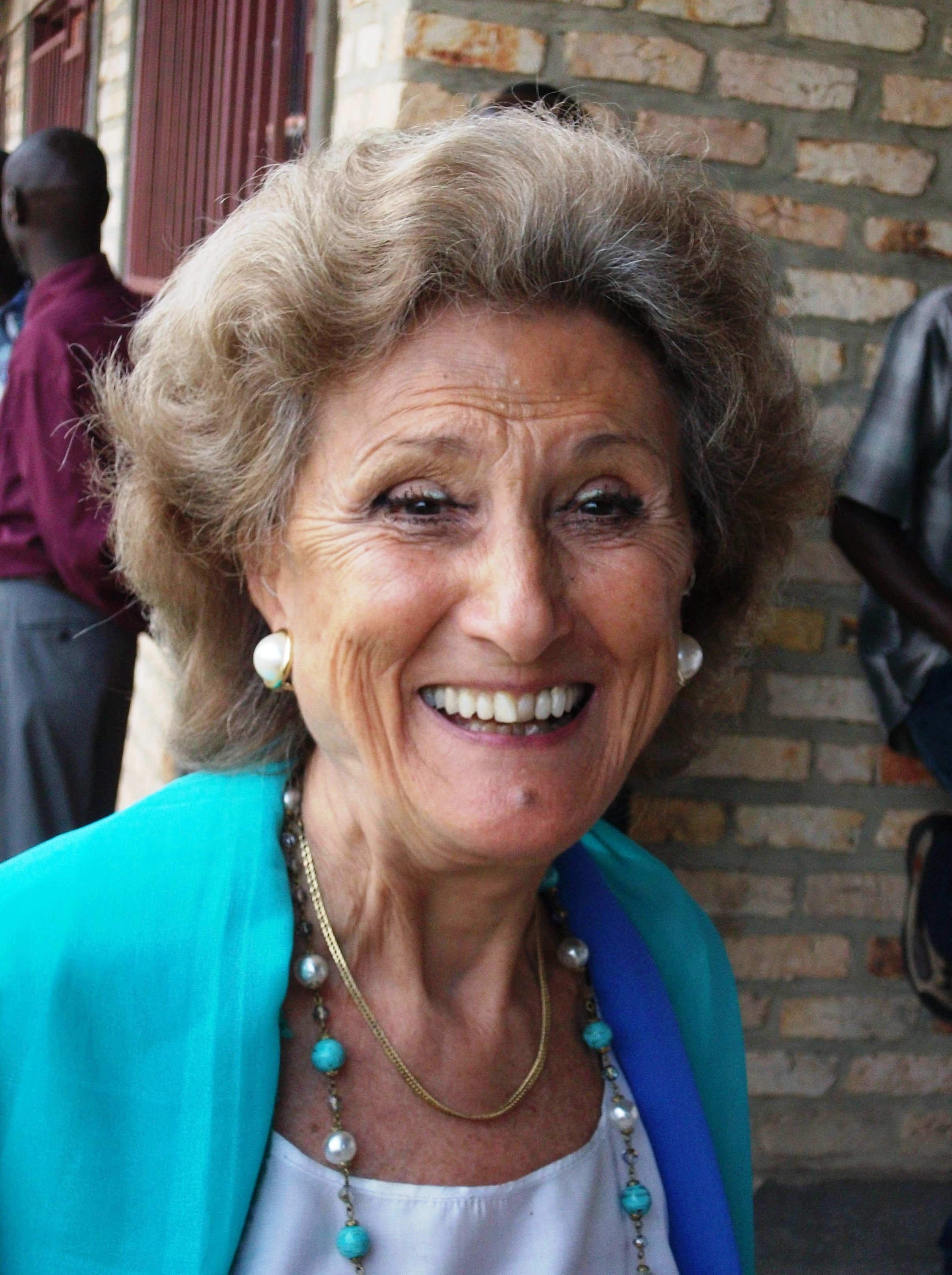
Raina is the founder of the Ahazaza Independent School, where many young orphans are taught for free in numerous languages. Raina’s work with the UN took her across the world, before finally settling in Rwanda. At the UN she assisted the public prosecution department to train the judicial police in their enquiries into the genocide. After retiring she was approached by a Rwandan university to teach and she quickly found Rwanda enchanting.
Her experience at the UN helped her identify a problem with the country’s education and she set about creating a solution accessible to all.
“The priority in the country’s struggle against poverty is education, as knowledge is the only real capital of those who have nothing. Knowledge is the cornerstone of equality.”
Raina now works to provide the best opportunities that she can for the future generations. Raina has big plans for Ahazaza, she dreams of the day that it will become self-sufficient and has plans in motion to generate income through the school. With the addition of a Farm School and an Internet Café, Raina hopes that the school will be able to continue to develop and raise more children out of poverty.
Raina has displayed an irrepressible will to succeed and a determination to help those less fortunate than herself, defying her 83 years. According to Raina elderly people are highly respected in Rwanda and she feels this is part of the reason she has been able to continue her good work with so much local support.
Bina Silwal, founder of Kopila, Nepal
Operating across some of the poorest regions of Nepal, Bina and her husband, Prakash, have successfully acquired funding through donations to ensure that standards of education are upheld regardless of geographic location or income.
In response to the way in which rural Nepali communities lived, Bina decided to dedicate her time to promoting equality through the non-government, non-sectarian, not-for-profit organisation - Kopila. It is here that she hoped to challenge historical attitudes towards women, other races and ethnic groups in a bid to improve the livelihood of the community; especially those at risk of discrimination and violence.
Kopila has provided Bina with the platform she needed to see her vision of a higher standard of living for rural Nepalese realised. With the support of her family and the conviction of her belief, Bina was able to overcome the gender discrimination that is rife within Nepal and craft herself a place of learning and equality. Her work has encouraged the message of equality to spread and has brought women into local-level decision making processes.
“My experiences only made me stronger, many women would be intimidated enough to convince themselves that it is easier and ‘the proper thing’ to simply remain at home.”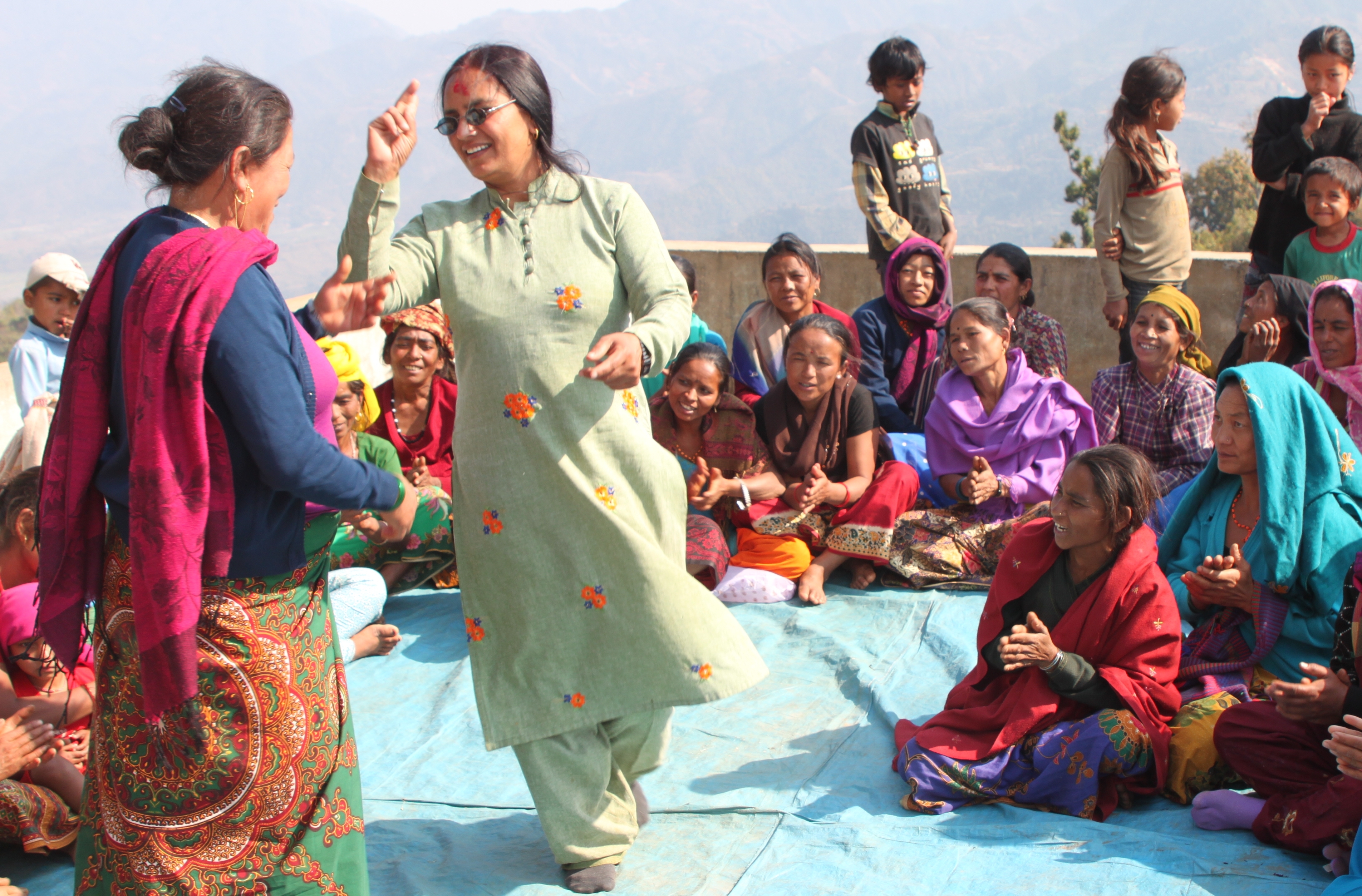
Bina dared to dream for more than what social convention suggested a woman in her place should have and has successfully utilised her academic qualifications, dedication and honesty to achieve more than she ever felt she could. Overcoming the social stigmas of rural Nepalese communities is something that few women can do, when faced with such overwhelming symptoms of discrimination many women would simply have given up.
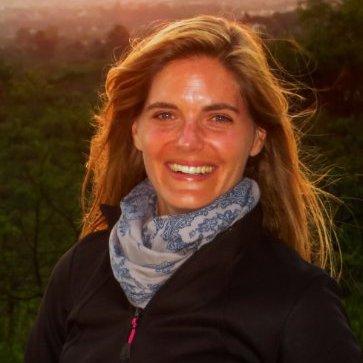
In spite of being repeatedly told that her exploits would fail and experiencing many difficulties as a result of Zimbabwe’s situation in 2008, Isabel continued, not for herself, but for the families and children the programme was supporting. At a time where the government was failing to provide food for the shops, the welfare of disabled children was severely threatened, but this didn’t stop Isabel from believing in her cause.
She watched with pride as her organisation grew from just one member of staff and a handful of volunteers to 11 full time staff and a network of volunteers spread across Zimbabwe, the Netherlands and the UK.
Lily Oyare, Founder of Little Rock Inclusive ECD Centre, Kenya
Lily Oyare, the founder of Little Rock Inclusive Early Childhood Development Centre, cast off the gender stereotypes of Kenyan society and persevered despite the lack of governmental support. Whilst she notes that there are not many women running organisations such as hers in Kenya, she is living proof that such an endeavour is not only possible, but also highly beneficial to those it seeks to help.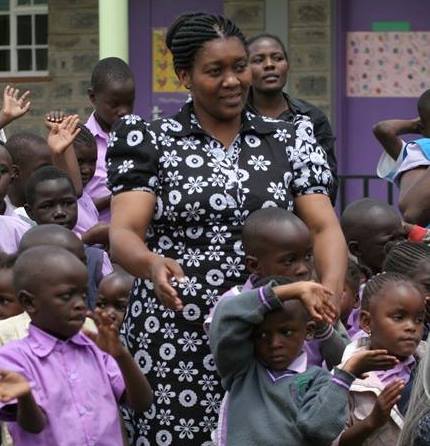
The Centre was founded 11 years ago and helps to create a brighter future for the children of the Kibera slums, an area of Nairobi devastated by poverty. With over 1 million children living in the slums, Little Rock serves over 30% with an equal opportunities education and access to basic healthcare that otherwise would simply not exist. Lily has actively expanded the programme to include a nursery, indepth education syllabus, food and income generating advice for parents struggling to cope.
She was in awe of the women whom MLF had helped – despite their circumstances they had triumphed in the business world and changed the local attitude towards women. This has helped to negate the social stigma that often surrounds women in the developing world as many are now able to enjoy financial independence. This gave Rebecca an enormous sense of pride to have been a part of something so special.
Janette Szubart, AfID Volunteer, Village Exchange Ghana
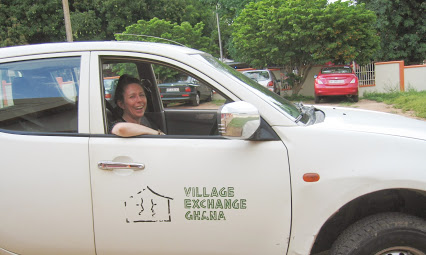 The same is true of Janette Szubart (ACMA) who recognised the need for advancing the role of women within society on a global level and set out to support women’s empowerment organisation Village Exchange Ghana. Through taking a holistic approach to poverty alleviation and a comprehensive set of programmes, Village Exchange Ghana work with Ghana’s marginalised women to tackle poverty, discrimination and sexual health.
The same is true of Janette Szubart (ACMA) who recognised the need for advancing the role of women within society on a global level and set out to support women’s empowerment organisation Village Exchange Ghana. Through taking a holistic approach to poverty alleviation and a comprehensive set of programmes, Village Exchange Ghana work with Ghana’s marginalised women to tackle poverty, discrimination and sexual health.
In their 12 years of activity, VEG have reached thousands men, women and children to overcome poverty and provided education on life-saving matters. Janette felt compelled to help those in places where women’s rights were the least developed.
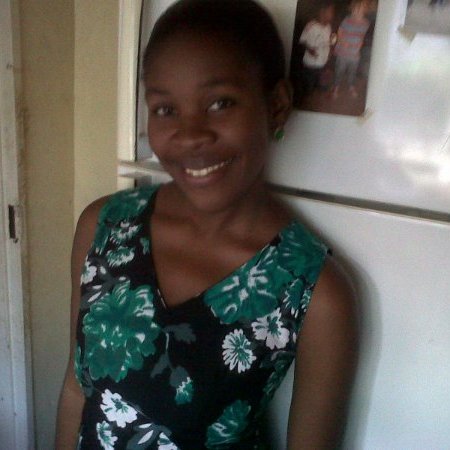
No matter how deeply entrenched attitudes towards women are in parts of the world, they can be overcome and it is the continued efforts of volunteers, organisations and local women who are making these changes and changing the prospects of future generations of women.
The need for change was recently vocalised at The Third African Women’s Economic Summit where the Zambian Minister for Finance and the Minister of Gender and Child Development, Inonge Wina, spoke on the theme of helping Africa to realise its economic potential through the social inclusion of women. “We need new and fresh thinking in the way the banking and finance sectors operate across Africa and to create new models for engaging and assisting women to become entrepreneurs, investors, leaders and decision makers” These changes aren’t isolated – Liberia’s new president, Ellen Johnson Sirleaf, does not see the acceptance of female leadership in her country as unique; “Today women are competing at all levels in society - for public office, for political office. Women are taking leadership in all aspects.”
The rise in women recognising that they can overcome cultural impediments is occurring across the developing world and highlights the vast potential that all women hold to make a difference in society. AfID is proud to have worked with such compassionate, determined people and to have helped play a small part in their inspiring achievements towards the betterment of society. As many of the women featured here have noted, the job is far from done – for as long as women face discrimination, people will continue to fight it in support of a fairer, better quality of life.
Have you got the will to make change possible?
For more information regarding volunteer opportunities with Accounting for International Development, visit http://www.afid.org.uk/
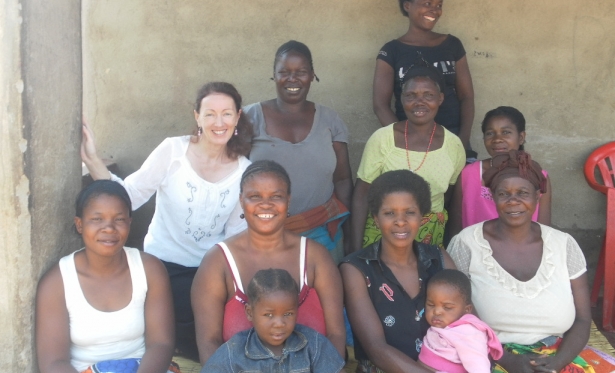
equality for women. Senegal elected Aminata Touré who recently served as the Premiere Ministre until July this year. Her previous involvement with women’s rights organizations has strongly influenced her policies and her liberal stance on the decriminalization of homosexuality has heralded the
beginning of some monumental changes across the country. 
The EU Commissioner for Development, Andris Piebalgs recently stated that “women in power can make a positive difference, it’s vital that every woman is given the chance to fulfil her potential; no matter where she lives”. This came after a survey across Europe found over 90% of Europeans believe that gender equality improves the way that society functions and that all aid programs should take women’s rights into account.
Over the past 5 years AfID have encountered hundreds of women whose talent and continued commitment has changed lives. With the global attitude towards gender equality shifting in favour of a more equal approach, it serves to highlight the harsh realities that women of the developing world have faced in the past and it makes the stories of these women all the more inspiring to know what difficulties they overcame to reach their goals and to commit to helping others.
Raina Luff, founder of Ahazaza Independent School, RWANDA
Ten years on from one of the worst genocides, Rwanda has made giant strides but there is still plenty of work to be done. One lady who saw the need for a sustainable future through education is Raina Luff.

Raina is the founder of the Ahazaza Independent School, where many young orphans are taught for free in numerous languages. Raina’s work with the UN took her across the world, before finally settling in Rwanda. At the UN she assisted the public prosecution department to train the judicial police in their enquiries into the genocide. After retiring she was approached by a Rwandan university to teach and she quickly found Rwanda enchanting.
Her experience at the UN helped her identify a problem with the country’s education and she set about creating a solution accessible to all.
“The priority in the country’s struggle against poverty is education, as knowledge is the only real capital of those who have nothing. Knowledge is the cornerstone of equality.”
Raina now works to provide the best opportunities that she can for the future generations. Raina has big plans for Ahazaza, she dreams of the day that it will become self-sufficient and has plans in motion to generate income through the school. With the addition of a Farm School and an Internet Café, Raina hopes that the school will be able to continue to develop and raise more children out of poverty.
Raina has displayed an irrepressible will to succeed and a determination to help those less fortunate than herself, defying her 83 years. According to Raina elderly people are highly respected in Rwanda and she feels this is part of the reason she has been able to continue her good work with so much local support.
Bina Silwal, founder of Kopila, Nepal
Operating across some of the poorest regions of Nepal, Bina and her husband, Prakash, have successfully acquired funding through donations to ensure that standards of education are upheld regardless of geographic location or income.
In response to the way in which rural Nepali communities lived, Bina decided to dedicate her time to promoting equality through the non-government, non-sectarian, not-for-profit organisation - Kopila. It is here that she hoped to challenge historical attitudes towards women, other races and ethnic groups in a bid to improve the livelihood of the community; especially those at risk of discrimination and violence.
Kopila has provided Bina with the platform she needed to see her vision of a higher standard of living for rural Nepalese realised. With the support of her family and the conviction of her belief, Bina was able to overcome the gender discrimination that is rife within Nepal and craft herself a place of learning and equality. Her work has encouraged the message of equality to spread and has brought women into local-level decision making processes.
“My experiences only made me stronger, many women would be intimidated enough to convince themselves that it is easier and ‘the proper thing’ to simply remain at home.”

Bina dared to dream for more than what social convention suggested a woman in her place should have and has successfully utilised her academic qualifications, dedication and honesty to achieve more than she ever felt she could. Overcoming the social stigmas of rural Nepalese communities is something that few women can do, when faced with such overwhelming symptoms of discrimination many women would simply have given up.
To be a woman and to be successful in the international development sector means being able to navigate such obstacles, despite the fact that NGOs are amongst the highest employers of women in Nepal. According to Bina, this grants women a chance to work equally alongside their male counterparts – which in turn helps to alter the perception of a woman’s capabilities within society. This in turn helps to dispel the notion that a woman should remain at home whilst simultaneously provides greater support for organisations that can have a greater impact upon society.
Bina's work has proved priceless in altering the lives of those around her, she has helped to grant a level of social inclusion to people who otherwise would have merely accepted their fate. Kopila has established a safe house for women, a place of security and tranquillity. It was a safe haven for women who lived under the constant threat of domestic violence or those who had been abused on account of their gender.
Bina notes the inherent dangers of pursuing an ideal such as gender equality in a place like Nepal, which gives some context to the need for this kind of discrimination to end. “Sexual harassment and abuse perpetrated in rural areas by village leaders against women is commonplace, as most cases are unreported or simply dismissed by authorities. In an environment where it is sometimes physically dangerous for us ‘outsiders’ to discuss these topics with local women – this remains an ongoing challenge.”
Kopila is just one step on the long road to progress, to date her organisation has granted educational support to over 700 children, provided psychological counselling to 276 people and are assisting 775 women in self-help groups in order to fight social injustice. The difference she is making is immeasurable; these figures can never capture the true emotional difference that Kopila has made to the lives of individuals. Her story is moving and inspiring, but she is not alone in her struggle or in her achievements.
Isabel De Vugt, Founder of Sports 4 Socialisation, Zimbabwe
Isabel De Vugt is founder and head executive of Sports 4 Socialisation, she and her team aim to promote social inclusion for disabled children across Zimbabwe, the Netherlands and the UK through sports. Isabel confesses that she thrives on the unpredictable nature of working in Zimbabwe and it is her
drive for creating equal opportunities for disabled children that has helped her triumph in the face of social inequality, allowing her organisation to provide a vital service that the government of Zimbabwe could not. Isabel identifies her positive attitude as the reason she has been so successful and maintains that with the right mentality you can accomplish anything. Bina's work has proved priceless in altering the lives of those around her, she has helped to grant a level of social inclusion to people who otherwise would have merely accepted their fate. Kopila has established a safe house for women, a place of security and tranquillity. It was a safe haven for women who lived under the constant threat of domestic violence or those who had been abused on account of their gender.
Bina notes the inherent dangers of pursuing an ideal such as gender equality in a place like Nepal, which gives some context to the need for this kind of discrimination to end. “Sexual harassment and abuse perpetrated in rural areas by village leaders against women is commonplace, as most cases are unreported or simply dismissed by authorities. In an environment where it is sometimes physically dangerous for us ‘outsiders’ to discuss these topics with local women – this remains an ongoing challenge.”
Kopila is just one step on the long road to progress, to date her organisation has granted educational support to over 700 children, provided psychological counselling to 276 people and are assisting 775 women in self-help groups in order to fight social injustice. The difference she is making is immeasurable; these figures can never capture the true emotional difference that Kopila has made to the lives of individuals. Her story is moving and inspiring, but she is not alone in her struggle or in her achievements.
Isabel De Vugt, Founder of Sports 4 Socialisation, Zimbabwe

“The advice I would give women is to just do it! Get out there and travel. Be confident. A confident woman is likely to face less hassle than a visibly insecure one.”
In spite of being repeatedly told that her exploits would fail and experiencing many difficulties as a result of Zimbabwe’s situation in 2008, Isabel continued, not for herself, but for the families and children the programme was supporting. At a time where the government was failing to provide food for the shops, the welfare of disabled children was severely threatened, but this didn’t stop Isabel from believing in her cause.
She watched with pride as her organisation grew from just one member of staff and a handful of volunteers to 11 full time staff and a network of volunteers spread across Zimbabwe, the Netherlands and the UK.
Lily Oyare, Founder of Little Rock Inclusive ECD Centre, Kenya
Lily Oyare, the founder of Little Rock Inclusive Early Childhood Development Centre, cast off the gender stereotypes of Kenyan society and persevered despite the lack of governmental support. Whilst she notes that there are not many women running organisations such as hers in Kenya, she is living proof that such an endeavour is not only possible, but also highly beneficial to those it seeks to help.

The Centre was founded 11 years ago and helps to create a brighter future for the children of the Kibera slums, an area of Nairobi devastated by poverty. With over 1 million children living in the slums, Little Rock serves over 30% with an equal opportunities education and access to basic healthcare that otherwise would simply not exist. Lily has actively expanded the programme to include a nursery, indepth education syllabus, food and income generating advice for parents struggling to cope.
“One of the main issues is the lack of forums which empower women to tackle their issues, I don’t think that development programmes are addressing these issues; we must work harder”
Accounting for International Development has now placed over 500 volunteers globally; close to half of these have been female accountants, often overcoming personal fears to travel alone to distant and challenging environments to support an amazing array of charities. Many, if not all, of their stories could be described as inspiring.
Rebecca Ryan, AfID Volunteer, MicroLoan Foundation, Zambia
Having lost her job to redundancy CIMA qualified accountant Rebecca Ryan decided to pursue a life-long dream of working in Africa. In just 9 days, Rebecca had made the arrangements to embark on her adventure to Zambia, where she was to work as the Interim Finance Manager for the MicroLoan Foundation (MLF). MLF helps some of the poorest women in the world feed their families, send their children to school and pay for life-saving medicines. By providing small loans and ongoing business training and support, the charity empowers women in rural Malawi and Zambia to set up self-sustaining businesses.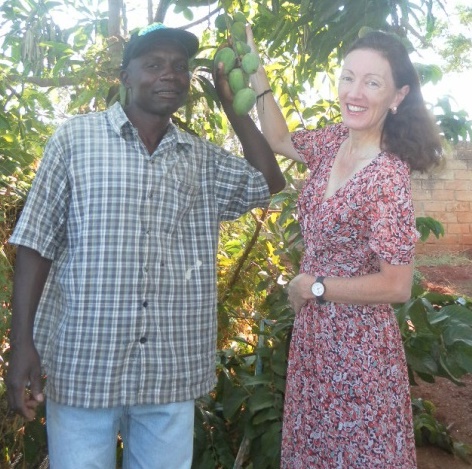
Rebecca was drawn to the idea of working for a women’s empowerment organisation and found it to be the most rewarding job she’d ever had. “The more I got to meet the women and talk to my colleagues, the more I appreciated the importance of microfinance in the developing world – without which life would be much harder for women.”
Accounting for International Development has now placed over 500 volunteers globally; close to half of these have been female accountants, often overcoming personal fears to travel alone to distant and challenging environments to support an amazing array of charities. Many, if not all, of their stories could be described as inspiring.
Rebecca Ryan, AfID Volunteer, MicroLoan Foundation, Zambia
Having lost her job to redundancy CIMA qualified accountant Rebecca Ryan decided to pursue a life-long dream of working in Africa. In just 9 days, Rebecca had made the arrangements to embark on her adventure to Zambia, where she was to work as the Interim Finance Manager for the MicroLoan Foundation (MLF). MLF helps some of the poorest women in the world feed their families, send their children to school and pay for life-saving medicines. By providing small loans and ongoing business training and support, the charity empowers women in rural Malawi and Zambia to set up self-sustaining businesses.

Rebecca was drawn to the idea of working for a women’s empowerment organisation and found it to be the most rewarding job she’d ever had. “The more I got to meet the women and talk to my colleagues, the more I appreciated the importance of microfinance in the developing world – without which life would be much harder for women.”
She was in awe of the women whom MLF had helped – despite their circumstances they had triumphed in the business world and changed the local attitude towards women. This has helped to negate the social stigma that often surrounds women in the developing world as many are now able to enjoy financial independence. This gave Rebecca an enormous sense of pride to have been a part of something so special.
Janette Szubart, AfID Volunteer, Village Exchange Ghana
 The same is true of Janette Szubart (ACMA) who recognised the need for advancing the role of women within society on a global level and set out to support women’s empowerment organisation Village Exchange Ghana. Through taking a holistic approach to poverty alleviation and a comprehensive set of programmes, Village Exchange Ghana work with Ghana’s marginalised women to tackle poverty, discrimination and sexual health.
The same is true of Janette Szubart (ACMA) who recognised the need for advancing the role of women within society on a global level and set out to support women’s empowerment organisation Village Exchange Ghana. Through taking a holistic approach to poverty alleviation and a comprehensive set of programmes, Village Exchange Ghana work with Ghana’s marginalised women to tackle poverty, discrimination and sexual health.In their 12 years of activity, VEG have reached thousands men, women and children to overcome poverty and provided education on life-saving matters. Janette felt compelled to help those in places where women’s rights were the least developed.
Women working for NGOs in the developing world often face challenges in their daily lives –from a lack of wages as a result of inadequate funding to working within male dominated and discriminative communities.
Grace Banda, Finance Manager, Barefeet Theatre, Zambia
Barefeet Theatre in Zambia is an organisation where orphans and vulnerable street children are supported to make positive changes in their lives through the medium of performing arts. Their workshops deliver life-saving information on HIV/AIDS, violence, drugs, health and children’s rights. AfID has worked with Barefeet on a number of occasions, sending 4 volunteers to Zambia since 2011 in order to assist their finance manager, Grace Banda.
Grace works in the small office next to the rehearsal rooms and she notes that she is something of a rarity – being a woman working in both a managerial and financial capacity. “There has been a lot of talk on gender equality in the last few years and people are beginning to accept it but there is still a long way to go here in Zambia” . She claims to be a woman and to succeed in changing things you need “passion and education”, but sadly it is not commonplace for women to try. Grace thinks that it is only through trying her best that she was able to find herself making the difference that she does to the children of Barefeet Theatre – “That's all we can do, the best that we can.” Grace Banda, Finance Manager, Barefeet Theatre, Zambia
Barefeet Theatre in Zambia is an organisation where orphans and vulnerable street children are supported to make positive changes in their lives through the medium of performing arts. Their workshops deliver life-saving information on HIV/AIDS, violence, drugs, health and children’s rights. AfID has worked with Barefeet on a number of occasions, sending 4 volunteers to Zambia since 2011 in order to assist their finance manager, Grace Banda.

No matter how deeply entrenched attitudes towards women are in parts of the world, they can be overcome and it is the continued efforts of volunteers, organisations and local women who are making these changes and changing the prospects of future generations of women.
The need for change was recently vocalised at The Third African Women’s Economic Summit where the Zambian Minister for Finance and the Minister of Gender and Child Development, Inonge Wina, spoke on the theme of helping Africa to realise its economic potential through the social inclusion of women. “We need new and fresh thinking in the way the banking and finance sectors operate across Africa and to create new models for engaging and assisting women to become entrepreneurs, investors, leaders and decision makers” These changes aren’t isolated – Liberia’s new president, Ellen Johnson Sirleaf, does not see the acceptance of female leadership in her country as unique; “Today women are competing at all levels in society - for public office, for political office. Women are taking leadership in all aspects.”
The rise in women recognising that they can overcome cultural impediments is occurring across the developing world and highlights the vast potential that all women hold to make a difference in society. AfID is proud to have worked with such compassionate, determined people and to have helped play a small part in their inspiring achievements towards the betterment of society. As many of the women featured here have noted, the job is far from done – for as long as women face discrimination, people will continue to fight it in support of a fairer, better quality of life.
Have you got the will to make change possible?
For more information regarding volunteer opportunities with Accounting for International Development, visit http://www.afid.org.uk/

